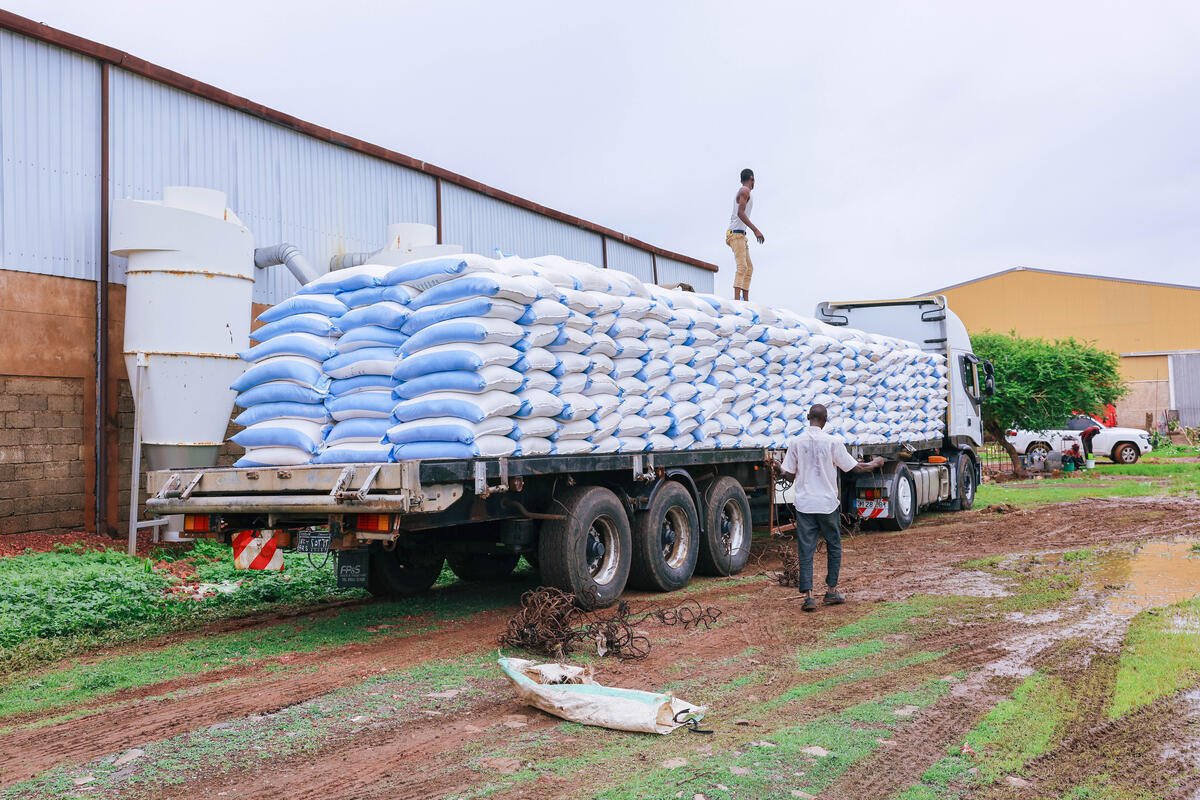Tuesday, 10 February 2026
FAO calls for urgent action to address widening famine in Sudan
FAO Deputy Director-General Beth Bechdol briefs the UN Security Council on Sudan’s food crisis Urgent action, in particular immediate and unimpeded humanitarian access, is required to address the widening famine…

FAO Deputy Director-General Beth Bechdol briefs the UN Security Council on Sudan’s food crisis
Urgent action, in particular immediate and unimpeded humanitarian access, is required to address the widening famine in Sudan, where almost 25 million people face acute food insecurity, the Deputy Director-General of the Food and Agriculture Organization of the United Nations (FAO), Beth Bechdol, told a UN Security Council meeting in New York.
FAO was invited to brief the Security Council on the deeply concerning situation in Sudan, where a protracted armed conflict and forced displacements are driving an unprecedented food crisis in Africa’s third-largest country.
According to the latest Integrated Food Security Phase Classification (IPC) analysis, half the population – or 24.6 million people – faces acute food insecurity. This is 3.5 million more people since June 2024.
The latest report by the IPC, a multi-partner initiative for improving food security and nutrition analysis and decision-making, is the worst in the country’s history. Widespread starvation and acute malnutrition have already resulted in tens of thousands of deaths in a country where almost two-thirds of the population depends on agriculture.
Key crops such as sorghum, millet, and wheat were produced 46 per cent less during the first year of the conflict—the 2023/24 season—than the previous year. This production loss could have fed approximately 18 million people annually and represented an economic loss of between $1.3 and $1.7 billion.
Restricted humanitarian access is exacerbating the situation, while sustained violence and economic turmoil have disrupted markets, driving the price of staple goods to unaffordable levels.
Technology
Blueberries Built for Export, Consistency and Premium Programs
Feb 09, 2026 | Food
Australia Approves Commercial Release of GM Purple Tomato
Feb 06, 2026 | Australia
Detmold Group Reports Progress on Emissions Reduction, Circular Packaging Goals
Feb 05, 2026 | Australia
Food Testing
AFNOR International Eyes Global Food Safety Growth with HACCP Group Takeover
Feb 04, 2026 | Australia
Incheon National University researchers uncover hidden toxin risks during nutrient-starved algal blooms
Feb 02, 2026 | Food Safety and Testing
How audit-led approaches are reinforcing trust in retail food safety
Feb 02, 2026 | Food Safety and Testing
More Popular
Nestlé Expands Aero Bubbles Range with New Caramel Flavour in UK and Ireland
Feb 09, 2026 | Company News
RCPL Strengthens Overseas Growth Strategy with Goodness Group Acquisition
Feb 09, 2026 | Australia
U.S. FDA Expands Permitted Uses of Spirulina-Based Blue Colours Following GNT’s Petition
Feb 09, 2026 | Company News






